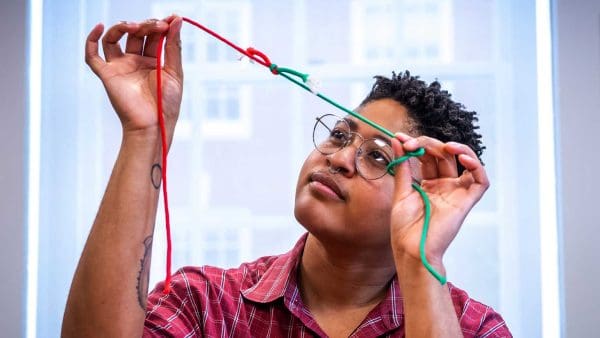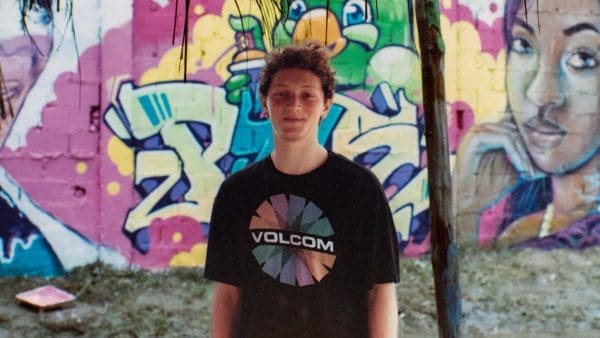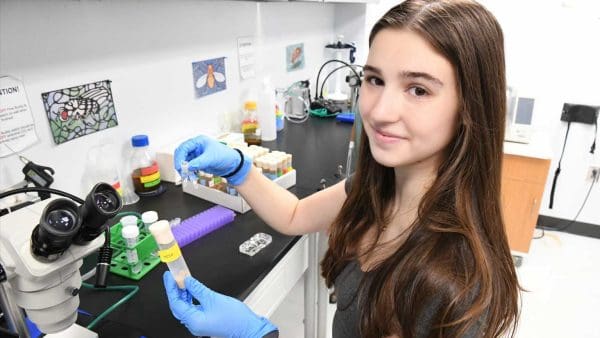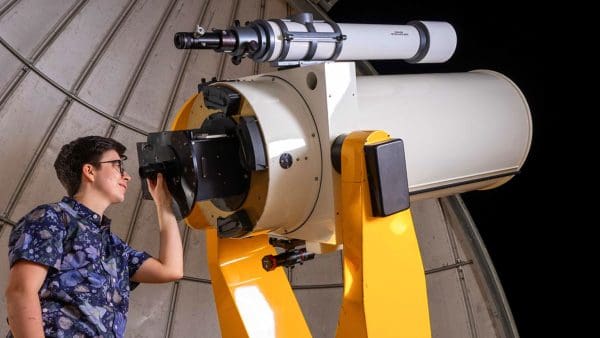Sandy Monter-Casio, a senior majoring in sociology and The Writing Seminars, used her $5,000 Dean’s ASPIRE Grant—awarded to Krieger School undergraduates pursuing original research—to create a digital library of Latino experiences at Johns Hopkins University.
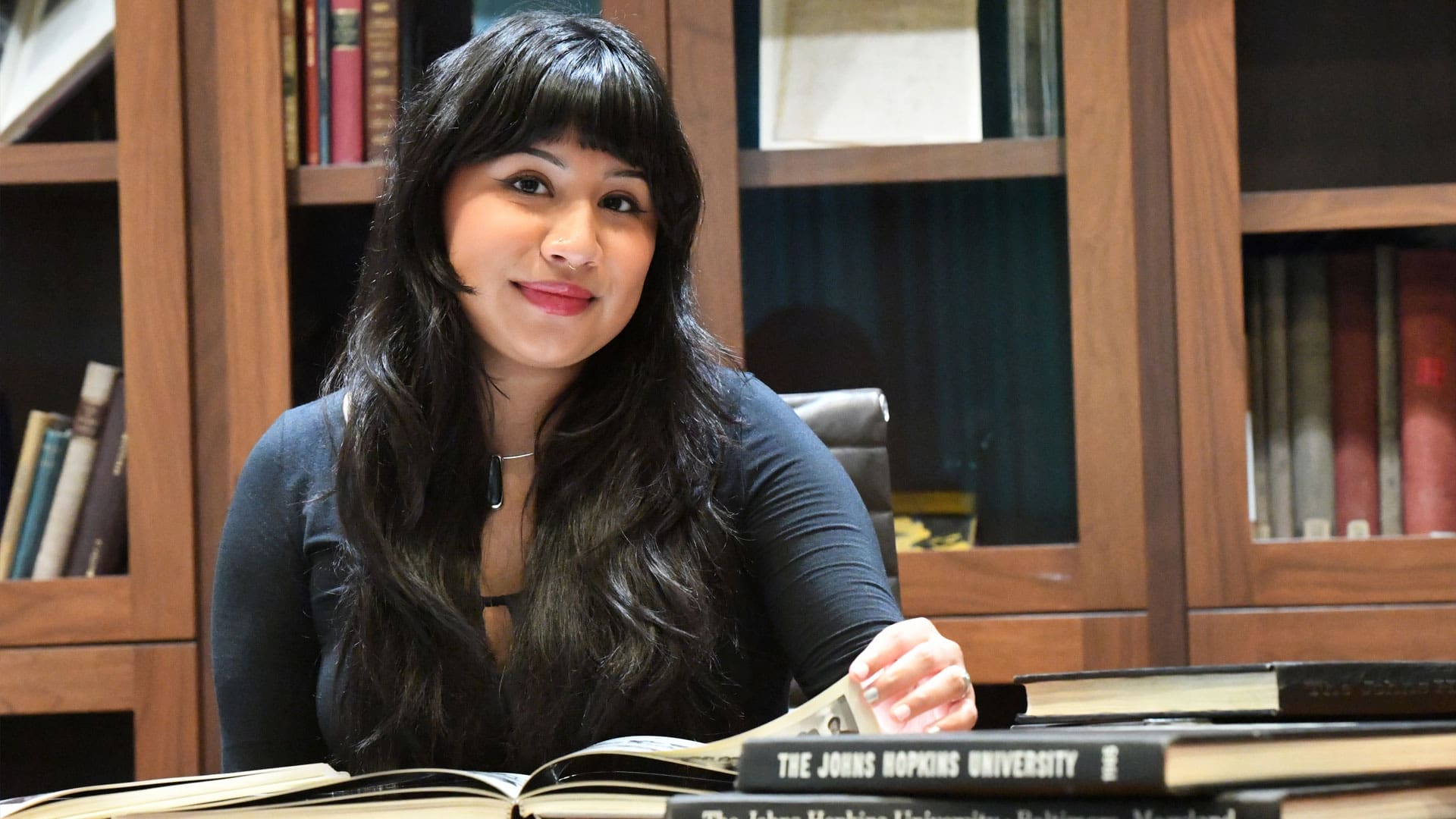
How did you get interested in this topic?
In the fall of 2023, I took a writing lab with Anne-Elizabeth Brodsky and Arthur Russell. There were just three students, so we got a lot of one-on-one attention. They encouraged us to pursue independent projects.
When I learned there were no formal archives of the Latino presence at Johns Hopkins, or of our contributions to the Hopkins community, I decided to do something about it. My goal is to preserve individual histories that contribute to a more representative Hopkins institutional memory, while serving as a platform for voices that have been historically silenced.
How are you conducting your research?
I started by going through Johns Hopkins News-Letter archives, yearbooks, and club records, searching for words like Hispanic, Latino, and integration. It’s helpful that Hopkins has a surprisingly long history of student activism, which was documented throughout the 20th century.
I’ve also conducted six interviews so far with current or previous faculty members with leadership roles in the Latino community on campus, and I am working to align those narratives with the archival materials.
What are you discovering about the history of Latino students at Johns Hopkins?
Before the 1960s, Latino student activism was virtually nonexistent, although there were early efforts to establish cultural recognition. Starting in the mid-1980s, Latino-centric organizations and Spanish language clubs began to form. In the 1990s, Johns Hopkins introduced diversity and inclusion programs, specifically to improve conditions for Black and Latino students on campus.
What do you hope your digital library will achieve?
My high school on Maryland’s Eastern Shore was not diverse at all, and I was usually the only Latino in my classroom. Coming to Hopkins was the biggest culture shock of my life, in a good way. I was suddenly in a space where I saw so many people who looked like me, and who had similar backgrounds.
I’ve met so many first-generation and Latino students who are quietly struggling, and that shouldn’t be the case. We have fought for our place at Hopkins. I want to contribute to an environment that acknowledges and reflects our contributions.

